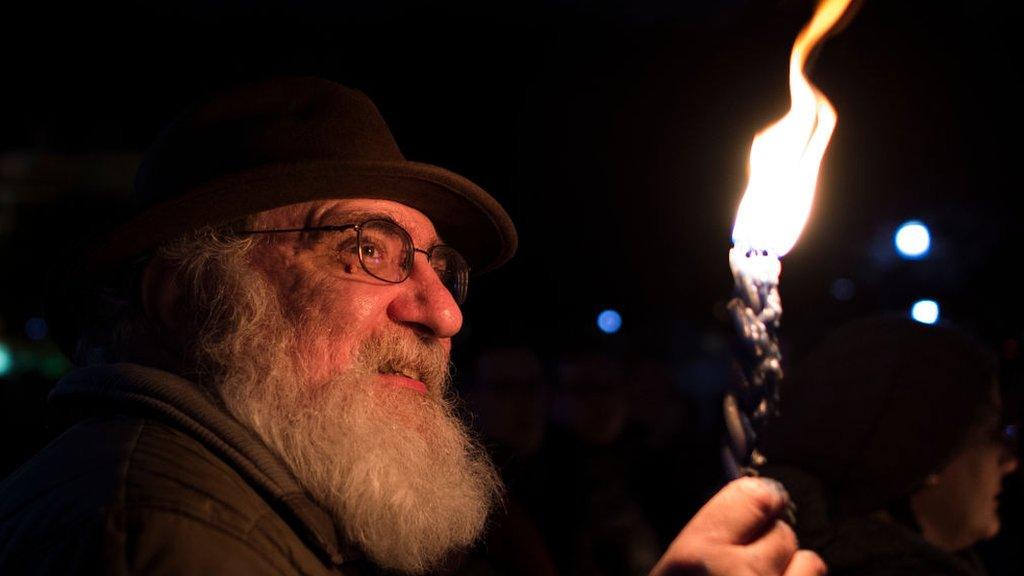FBI: Spike in US hate crimes for third year in a row
- Published
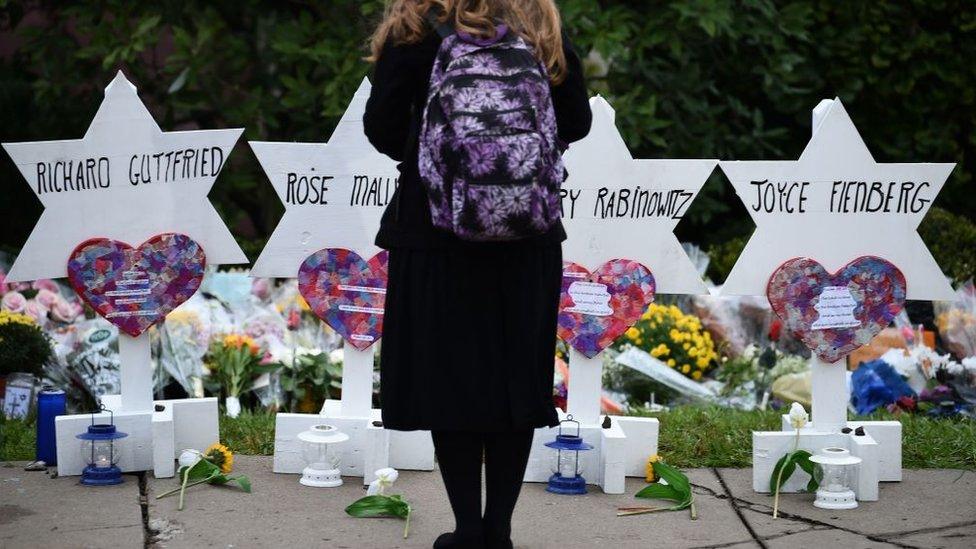
Last month, 11 worshippers were killed in the deadliest attack against Jews in US history
Hate crimes in the US rose by 17% in 2017, the third straight year that incidents of bias-motivated attacks have grown, according to the FBI.
Law enforcement agencies reported 7,175 hate crimes last year compared with 6,121 in 2016.
The rise in hate crimes is attributed to an increase of about 1,000 police departments that are now choosing to report these incidents, the FBI says.
The report found the surge especially affected black and Jewish Americans.
Of the reported attacks in 2017, 2,013 were aimed at African Americans and 938 were against Jewish Americans.
Acting Attorney General Matthew Whitaker called the report a "call to action" and condemned the offences as "despicable violations of our core values as Americans".
What did the report find?
According to the report, external, 59.6% of incidents were motivated by bias against race, ethnicity or ancestry.
Crimes motivated by a victim's religion constituted 20.6% of attacks, and crimes against a person's sexual orientation made up 15.8%.
The FBI definition of a hate crime is a "criminal offence against a person or property motivated in whole or in part by an offender's bias against a race, religion, disability, sexual orientation, ethnicity, gender, or gender identity".

More on US hate crimes

The 2017 data notes that about 5,000 of the crimes were directed against people through intimidation or assault.
Around 3,000 were targeted at property, which includes vandalism or burglary.
Crimes against Sikhs, Hindus and Arabs were not counted prior to 2015.
The BBC spoke to a Muslim-American couple targeted by an abusive caller
Crimes against Jewish Americans saw a notable increase of 37% over 2016.
Jews have long been the highest targeted religion, as the acting attorney general noted in his statement.
The new report comes a month after 11 Jews were killed by a gunman that burst into their synagogue in Pittsburgh as they prayed, marking the deadliest attack against Jews in US history. The suspect was charged with dozens of federal hate crimes.
Crimes against African Americans constituted 2,013 crimes, marking a 16% increase over the previous year.
Muslim individuals were the target of 18.7% of religiously motivated hate crimes, which was a drop of 6% from 2016.
What is the reaction?
Civil rights advocates say the numbers are vastly under-reported because of individual victims that choose not to come forward, and some police agencies that do not keep accurate statistics or do not contribute them to the study.
Jonathan Greenblatt of the Jewish Anti-Defamation League, said the report "provides further evidence that more must be done to address the divisive climate of hate in America.
Pittsburgh survivor Rabbi Doris Dyen: 'I'm broken and I can't pray'
"That begins with leaders from all walks of life and from all sectors of society forcefully condemning anti-Semitism, bigotry, and hate whenever it occurs."
Civil rights organisation the NAACP (National Association for the Advancement of Colored People) said the findings were "shocking" and "requires Congress's full attention".
Allow X content?
This article contains content provided by X. We ask for your permission before anything is loaded, as they may be using cookies and other technologies. You may want to read X’s cookie policy, external and privacy policy, external before accepting. To view this content choose ‘accept and continue’.

The Chicago office of the Council on American-Islamic Relations (CAIR), a Muslim civil liberties organisation, expressed alarm at the "increase of bigotry and hate".
"This is the third year where we witness an increase in reported incidents of hate targeted at our most vulnerable populations. Between 2016 and 2017, CAIR-Chicago has received a 50% increase in reported incidents of discrimination," said Deputy Director Sufyan Sohel in a statement.
"We can do better. We must do better."
In his statement, Mr Whitaker said: "The Department of Justice's top priority is to reduce violent crime in America, and hate crimes are violent crimes."
He shot at a mosque - and his life changed
"The American people can be assured that this department has already taken significant and aggressive actions against these crimes and that we will vigorously and effectively defend their rights," he continued.
- Published29 November 2016
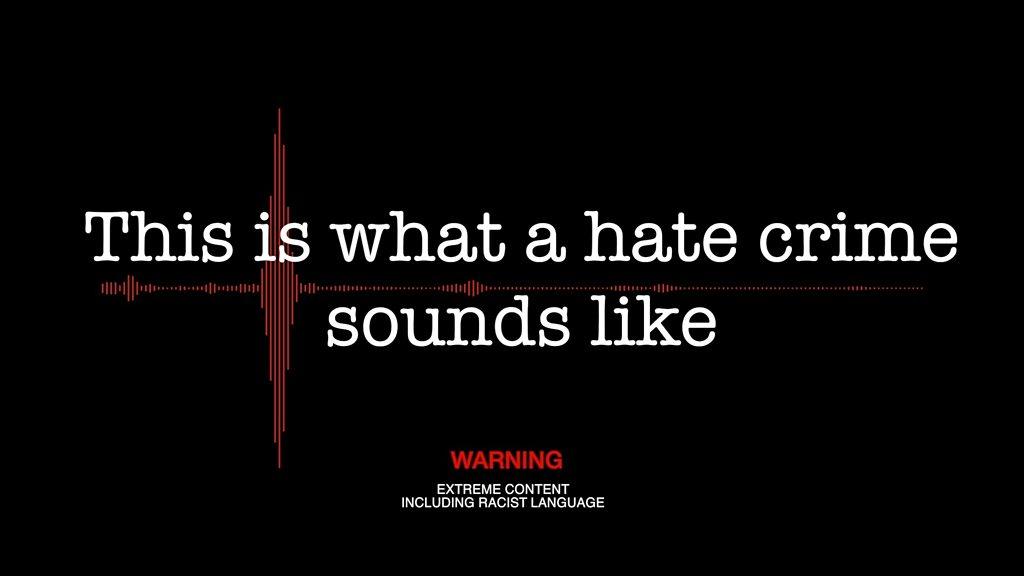
- Published9 November 2018
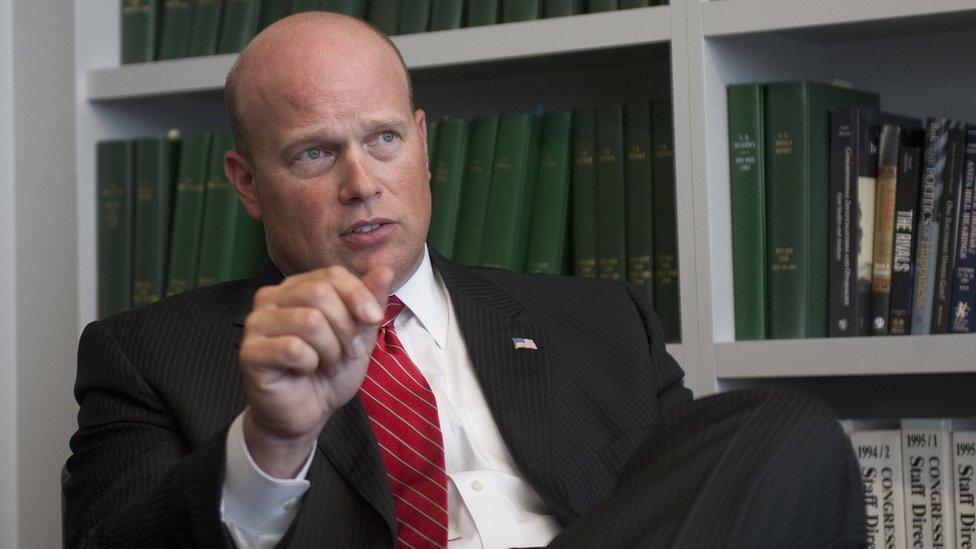
- Published13 November 2018
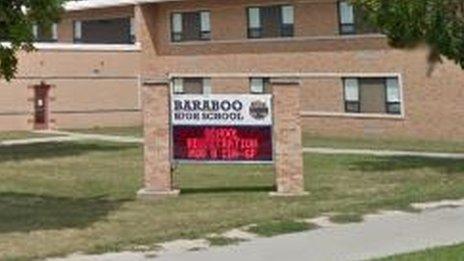
- Published2 November 2018
